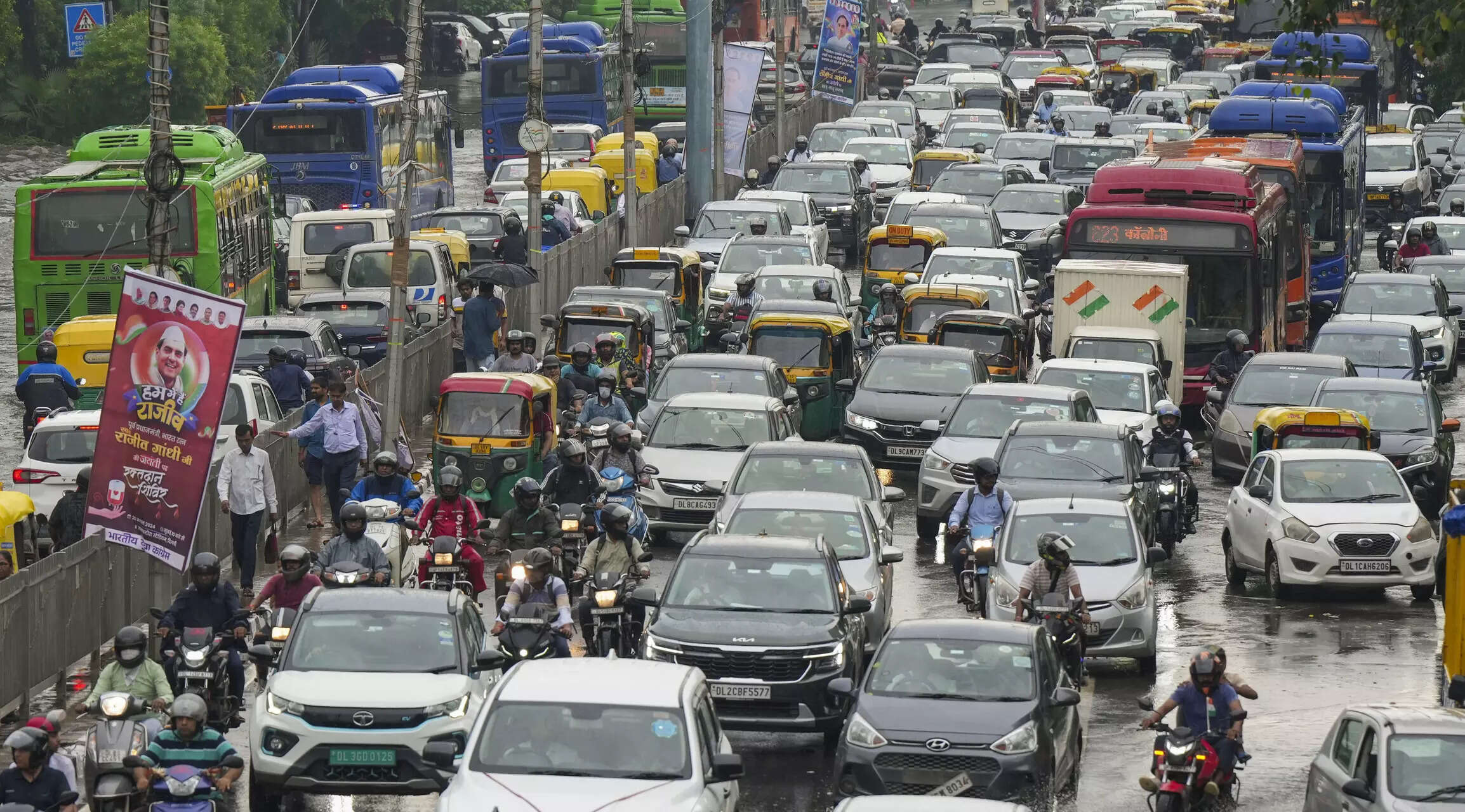
New Delhi: Over 30% of the vehicles running on city roads do not have the mandatory Pollution Under Control Certificate (PUCC). According to govt data, of the 82.9 lakh active vehicles in the city, the PUCC of 26.2 lakh have expired and haven’t been renewed. Delhi’s 3,17,515 electric vehicles do not require PUCC.
While the term “active vehicles” refers to those that are permitted to operate on the roads and are those that are typically below 10 years for diesel and 15 years for petrol vehicles, transport department officials clarified that of the 30% non-complying vehicles, a small portion are no longer plying. PUCC notifies that a vehicle complies with emission standards and the emissions are within the prescribed limits.
This data has been compiled to help the transport department as it intensifies its efforts to ensure compliance with PUCC guidelines. A Delhi govt official said that the violators encompass various types of vehicles, both two-wheelers and four-wheelers.
The state govt aims to crack down on individuals who fail to get valid pollution certification. The official said that 30 motorcycle teams have been posted at petrol pumps to check PUCC compliance of the vehicles arriving there. People are given reminders about the lapse of their PUCC validity over SMS and WhatsApp and the e-challan system has been integrated with the National Payments Corporation of India for faster payment of challans digitally.
Officials said that ahead of winter, when the city faces a pollution crisis, govt wants all vehicles to be compliant and those running without a valid PUCC will face a hefty fine of INR 10,000. Between August 1 and 28, around 1,500 vehicles were booked for not having a valid pollution certificate. A govt official said, “When there are several challans pending against vehicles, especially motorcycles, there is a tendency to evade paying the fines.”
The cameras at the petrol pumps are meant to catch such violators. When getting a PUCC, the vehicle number is put into the transport department’s database, so govt has a fair idea of which vehicles are non-compliant. The ongoing project to install cameras at petrol pumps will presumably indicate the vehicles that do not have PUCC or whose certificates have expired, thus ensuring that the PUCC violations are minimised, according to the official. Another official added, “The petrol pump camera project is in the final stage of execution and will be functional in 100 petrol pumps by Sept-end.”
Till now, the state govt has generated 26,459 challans through this model at 25 fuel stations where the system currently operates. A couple of years ago, Delhi govt had said vehicle owners would not be provided fuel at petrol pumps without a valid pollution certificate. However, the decision was put on hold after the petrol dealers’ association stated this would not be implementable and the rule never got notified.
Last month, Delhi govt raised the fees for the pollution certificates for petrol, CNG and diesel vehicles. The new rate for two and three-wheelers running on petrol, CNG or LPG (including biofuel) increased from INR 60 to INR 80. For four-wheelers and above in the same fuel categories, there is a more substantial spike, with the charge going up from INR 100 to INR 140.

